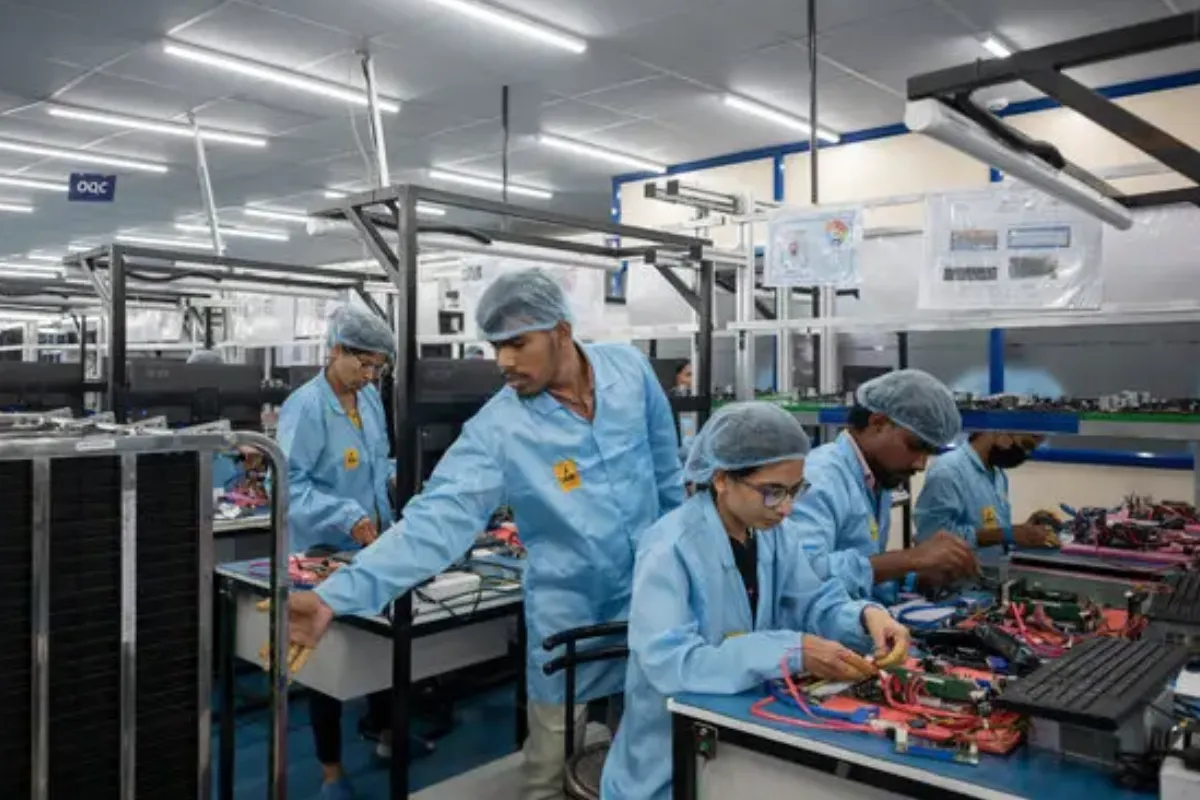In a major boost for India's tech manufacturing, Apple's partner Foxconn has started producing the iPhone 17 in its new Bengaluru plant. This move deepens Apple's "China Plus One" strategy and solidifies India's role as a global electronics hub.
 Minaketan Mishra
Minaketan Mishra

In a landmark development that significantly elevates India's position in the global electronics supply chain, Apple's primary contract manufacturer, Foxconn, has commenced small-scale production of the much-anticipated iPhone 17 at its new, state-of-the-art facility in Devanahalli, Bengaluru. This move marks a pivotal moment in Apple's ongoing strategy to diversify its manufacturing base beyond China and represents a massive vote of confidence in India's growing capabilities as a high-tech production hub. The new $2.8 billion plant, Foxconn's second-largest outside of China, is now operational, supplementing the existing iPhone 17 production at its Chennai unit.
While Apple and Foxconn have remained tight-lipped, sources familiar with the development confirmed that the first iPhone 17 units are rolling off the Bengaluru assembly lines. This strategic expansion is a clear execution of Apple's plan to ramp up its Indian operations. The company reportedly assembled iPhones worth an estimated $22 billion in India in the fiscal year ending March 31, 2025, a staggering 60% increase from the previous year.
The start of operations in Bengaluru was not without its challenges. Production faced a brief but significant interruption earlier this year when a large contingent of Chinese engineers departed unexpectedly. However, Foxconn demonstrated its operational resilience by quickly filling the void with technical experts from Taiwan and other locations, ensuring that the production timeline remained largely on track.
The launch of iPhone 17 production in India is more than just an increase in volume; it represents a qualitative leap in the country's role within Apple's ecosystem. For the first time, Apple is undertaking its critical "New Production Introduction" (NPI) process for a standard iPhone model at an Indian facility—a complex stage historically exclusive to China. The NPI process is vital for transforming prototype designs into mass-production-ready blueprints, a testament to the growing sophistication of India's manufacturing infrastructure.
This deepening integration is a direct result of a multi-year effort. As of July 2025, India was already manufacturing the iPhone 16 lineup, alongside older models. The inclusion of the iPhone 17, and potentially its "Pro" variants, in early-stage production solidifies India's strategic importance. This was underscored by Apple CEO Tim Cook's recent statement that the majority of iPhones sold in the United States during the June 2025 quarter were manufactured in India, a remarkable milestone.
Apple's increased focus on India is part of a broader trend of global manufacturers adopting a "China Plus One" strategy to de-risk their supply chains. Analysts are bullish on India's future, with JPMorgan forecasting that the country could account for 25% of global iPhone production by 2025, and Taiwan's DigiTimes predicting an astonishing 50% by 2027. While China still dominates, currently producing over 90% of all iPhones, India's share has grown rapidly from just a fraction to an estimated 14% of the global total in fiscal year 2024.
Apple plans to further increase its iPhone production in India to approximately 60 million units this year, a significant jump from the 35-40 million units produced in the 2024-25 period. This ramp-up is supported by a growing local ecosystem, with companies like Tata Electronics now manufacturing casings for the new iPhone models, further integrating Indian firms into Apple's high-value supply chain.
As the global launch of the iPhone 17, rumored for September 9, 2025, approaches, the role of Indian manufacturing has never been more crucial. The commencement of production at the new Foxconn plant in Bengaluru is not just a win for Apple and its partners; it's a powerful symbol of India's arrival as a formidable force in global technology manufacturing.






Sign up for the Daily newsletter to get your biggest stories, handpicked for you each day.
 Trending Now! in last 24hrs
Trending Now! in last 24hrs



